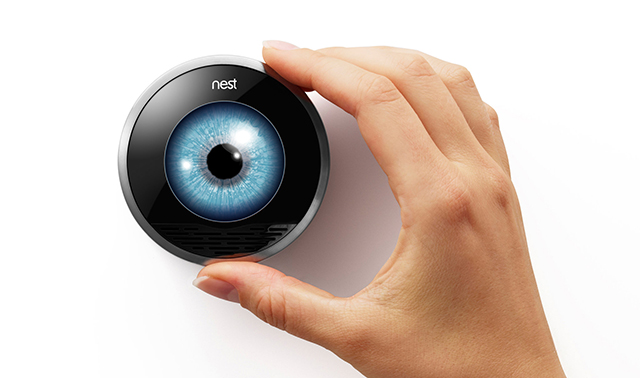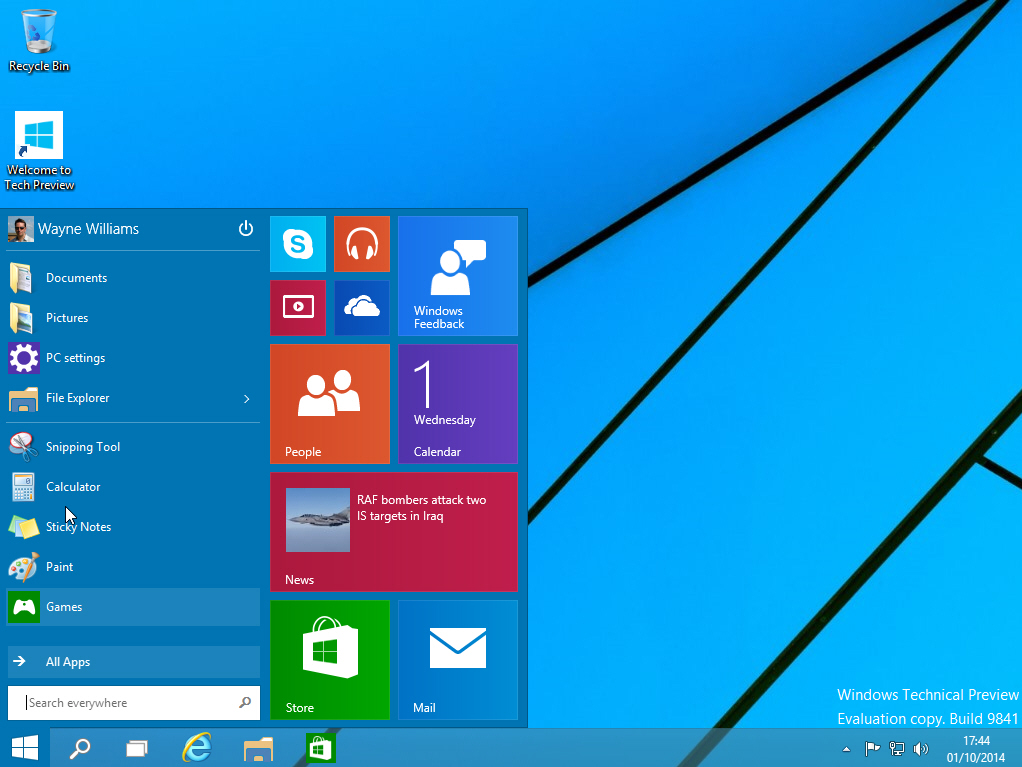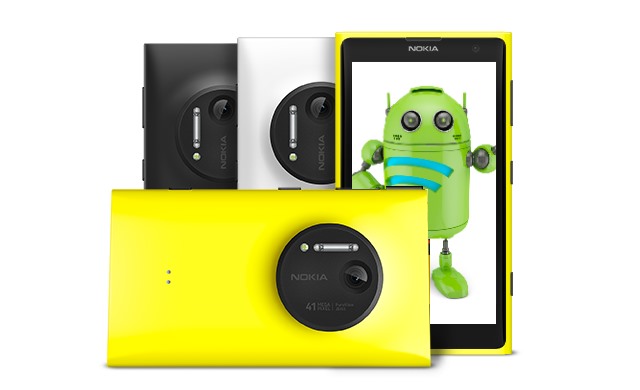
Microsoft unveils Nokia 215, a $29 phone with Internet access
Smartphones may be more affordable than ever, but, for quite a few people, they are still too expensive. And they offer short battery life, pretty much across the board. It is not a winning combination, especially for those living in developing markets, looking to be connected to the Internet while on the go.
Enter Nokia 215, a dirt-cheap Internet-ready phone, which Microsoft announced earlier today. It packs some of the most-important features people want in a smartphone, but without any of the major drawbacks. The software giant calls it its "most affordable Internet-ready entry-level phone yet", costing just $29.

Nest will now work with your door locks, light bulbs and more
In 2014 the Internet of Things became both a fascinating and scary thing, thanks to interesting products and a few hacks. Nest, while remaining the darling of this new industry, had its own set of problems with the potential issues found in its smoke detectors. But last year is all behind us, and hopefully 2015 holds more promise than problem.
Now the Google-owned company is announcing new functionality for its popular thermostat and perhaps scary smoke detector. The tiny wall and ceiling devices are getting a boatload of new functionality, involving that whole Internet of Things.

Apple sued by users who feel iOS 8 is too fat
It's at this time of year that many people start a diet -- and it's something that Apple might want to think about as well. Two US men are suing Apple because they believe iOS 8 is too big. Or, as the lawsuit puts it, uses an "unexpectedly large percentage of the storage capacity on 8 GB and 16 GB iPhones, iPads and iPods".
Paul Orshan and Christopher Endara complain that Apple failed to warn users that upgrading to the latest version of iOS could mean filling up to 23.1 percent of the available storage space. The lawsuit goes on to suggest that Apple is using the fact that users are likely to run out of space to push its iCloud storage service.

NetMarketShare adjusts its figures -- still has Windows 8.x losing major usage share
Yesterday, web analytics firm NetMarketShare released its monthly breakdown of desktop operating system usage share, and it contained a huge shock. According to the figures, Windows 8.x had dropped to its lowest usage share since March 2014, putting it back below XP.
It was a surprise because Windows 8 and 8.1 had both shown solid growth in the previous two months, but suddenly, according to NetMarketShare, 8.x had dropped a whopping 7.07 percentage points in a single month, most of that going to Windows NT. As I observed when reporting, something not quite right there. Late yesterday, the figures were pulled, and new ones have appeared today that show the tiled OS still doing badly, just not quite as badly.

How to install Windows 10 Insider Preview on Oracle VirtualBox
Microsoft has just released the Technical Preview of Windows 10. It’s a very early build, so you wouldn’t be advised to run it as your main operating system, and while you could set it to dual boot, running it in a virtualized environment is probably a better idea.
The process is very simple -- all you need is a copy of Oracle VM VirtualBox and the Windows 10 Technical Preview ISO.

Could Android apps save Windows Phone?
The mobile market is a four horse race... if we're being polite, that is. Really it's a battle between Apple's iOS and Google's Android. BlackBerry desperately neighs about its importance to the enterprise market, while Windows Phone stamps its hooves trying to gain attention as it's hauled off to the glue factory via the knacker's yard.
Microsoft's mobile OS may have gained ground in some parts of the world, but the reality is that it's struggling. Whenever we talk about Windows Phone it feels like the same topic comes up again and again, forcing us to re-tread old ground, bang the same drum. The app situation is dire; it's all but impossible to paint it any other way. But could opening up the ecosystem to Android apps save it from a slow and painful death?

Microsoft's Surface Pro 3 accolades are a bit rubbish
Considering the very rocky start Microsoft’s slate got off to after it launched in 2012 (middling reviews, a $900 million charge relating to Surface RT inventory adjustments when no one bought it, etc.), you can’t blame Microsoft for being a bit boastful now that it’s finally getting things right with Surface Pro 3.
So when Microsoft releases a video called 'Accolades -- Surface Pro 3' you’d expect it to be filled with, well, accolades for the Surface Pro 3. But instead of a video offering up quality trumpet blowing, we get the equivalent of someone tooting on a kazoo.

Apple's rumored iTunes and Beats Music 'Exclusives' plan is potentially evil
Imagine if in the 1990's, there were CDs that only played on certain players. In other words, what if Warner Brothers released the Red Hot Chili Peppers' iconic album, "Blood Sugar Sex Magik", and it only worked on CD players made by, say, Pioneer? Not only would it harm consumers, but also limit the reach of the artist. If you did not own a Pioneer CD player, you could not hear the album.
If a new rumor by the New York Post is to be believed, Apple is planning such a thing, but rather than CD players, its iTunes and Beats Music would be the means of harming the consumer. Yes, the fruit-logo company may be working with artists (and ultimately record labels) to bring album-exclusives to its own music services.

Anonymous declares war on Lizard Squad after DDoS attacks on game networks
Hacker outfit Lizard Squad was seemingly responsible for the misery of thousands of gamers this Christmas after a series of DDoS attacks were launched on the PlayStation Network and Xbox Live. Mega's Kim Dotcom stepped into the breach and was seemingly -- temporarily -- successful in negotiating with the group and getting them to stop the attacks.
While the gaming networks appear to have come back online for some, this is not enough for Anonymous -- yes, that Anonymous. The international activist group has declared war on Lizard Squad, saying that the hackers have "made an enemy" and warning that "now you are all going down".

Windows Phone's only hope is the enterprise
Windows Phone has no future in the consumer market. After being around for more than four years, its market share is only at 3 percent, and declining. Microsoft might as well pull the plug now, before its nickname becomes BlackBerry. After all, no one would really miss Windows Phone. Seemingly bracing for the inevitable, even die-hard Microsoft fanboys have embraced rival platforms (you know who they are). There's nothing to be gained by being the last one on the podium, unless Microsoft is looking to become the laughing stock of the market. It'll have to fight BlackBerry for the title, but that's not hard.
The consumer market is not only tough for Microsoft, but for relevant players too. Samsung's profits are sliding, and its sales aren't doing well either. Apple may still have the highest profits, but its iPhones' market share is closer to that of Windows Phone than Android. Other players are struggling with similar issues, which will only grow larger with time. So why keep going at it? At the end of the day, Windows Phone adds little to no value in the consumer market. However, there is still hope for the platform in the enterprise market, which has a different set of priorities to consumers. There, Microsoft actually has a chance of becoming a major player.

Microsoft and the Irish government appeal case over emails stored in Ireland
By now you've likely heard that the US is trying to seize emails held by Microsoft on foreign soil, something that you'd think it has no right to do. After all, the US government may have some reach, but grabbing from another nation seems to be extending it quite far. Both company and country are baulking at the prospect.
None of us wishes for a criminal to not be caught, but we want it to be done legally. Now Microsoft has officially filed its amicus brief in the New York court of appeals, with general counsel Brad Smith.

Windows and Linux are the same thing
Want to know a secret? Linux-based operating systems and Windows are the same thing -- crazy right? I know! I was shocked to learn this myself, but it is true. They are both a means to run software, called programs. Sure, the types of programs available for each are not identical, but they could be. You see, if developers wanted to, they could write their software for both operating systems. Sadly, Linux has a very small user share in the home, so it is not always financially possible to do so.
Still though, they are the same thing. Well, the same thing to some people at least, admittedly not all. One particular type of software is available for both Windows and Linux-based operating systems, making them the same thing for some -- the web browser. Yes, many home users utilize web browsers, like Chrome and Firefox, for all of their computing needs. In this sense, Windows and Linux are simply a means for running a web browser, and it doesn't matter which OS they choose.

EZTV comes back online, will The Pirate Bay be far behind?
Recently a raid took down the famed Torrent site, The Pirate Bay. With it went another popular service called EZTV. Soon after, I wrote that I felt this did little to obstruct piracy, only cause a brief slow down in the flow of files, and I predicted the Bay would come back.
It hasn't yet risen from the dead, though I still expect it will. However, fellow victim EZTV has returned to the land of the living and is now functioning as normal -- well mostly, it's up and down. In fact, it's even located at its old address of EZTV.it like nothing ever happened.

Nokia isn't totally abandoning HERE on Windows Phone, but Android and iOS will be its priority
Nokia’s HERE suite of driving and navigation apps first made its appearance on Windows Phone, and although it’s now being developed for other platforms, for many it remains best associated with Microsoft’s mobile operating system.
However, now that Nokia is no longer tied to Windows Phone, the Finnish company’s interest in developing for that platform is waning, and it will in future be focusing on Android and iOS -- which have a much larger user base.

Who's afraid of the big bad bot?
Web security specialist Incapsula has released its 2014 annual Bot Study which reveals that 56 percent of website traffic is accounted for by bots.
That's down from 61.5 percent on last year's study, however the number of 'bad' bots posing as humans has increased significantly.
